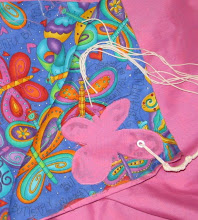
This blog was originally posted on Challah Back, the Jewish Federation of North America NextGen blog.
Yizkor. It’s the part of the Yom Kippur service where all the young people hang out in the hallway. While growing up, most young Jews were told one of two things about why they were in the hallway: a) this part of the service is very solemn, so the young people are asked to leave so they don’t disrupt and/or b) it’s bad luck to be in Yizkor until you have to be. It’s an ayin hara (and evil eye) on your loved ones.
It wasn’t until my mid-teens that I even learned that Yizkor happens four times a year. Yom Kippur was the instance I knew about, but there is actually a custom ofYizkor also being recited on the three pilgirimage festivals: Sukkot, Pesach, Shavuot(the Sukkot one corresponds to the chagim of Shemini Atzeret/Simhat Torah, depending on your observance).
I am no longer in the hallway for Yizkor. My father passed away on October 16, 2009. Last year, Pesach Yizkor was my first experience. It was so overwhelmingly painful. When you lose a loved one, people say, “It gets easier.” This week was my fifth Yizkor service, and the truth is, it hasn’t gotten any easier. The tears still flowed freely, and my heart ached with the sheer reality that I had a reason to be there.
When I looked around, I realized I was one of the youngest, if not the youngest, in the room (other than the rabbi himself). At 37 years old, I kept saying to myself, “I am too young to be here. It’s not fair. I still want to be in the hallway.” The heart-wrenching images of my father’s final week, and of the funeral itself, all bombarded me.
As my gaze fell on the members of the congregation, I tried to conjure images and stories of how long each person had been attending Yizkor, and tried to consider the person they were standing in memory of. As the tears rolled down my face, I could only wonder, will this get easier?
When I am standing here five years from now, will the painful memories of my loss still be as clear in my mind’s eye? When I am standing here 10 years from now, will the tears still roll freely? When I am standing here 20 years from now, will I still feel the hole in my heart and the “unfairness” of it all? When I am standing here 30 years from now, will I remember the sound of his voice? Will I remember?
And yet there was one question above them all that nagged at me the most. It was the question the rabbi asked in the moments preceding the Yizkor service. He led a conversation asking parents in the room, “At what moment have you felt the most honored by your children?” All I wanted to do was pick up the phone, call my dad, and ask him how he would answer that. And the fact that I couldn’t triggered another set of dripping tears and feelings that “It’s not fair.”
